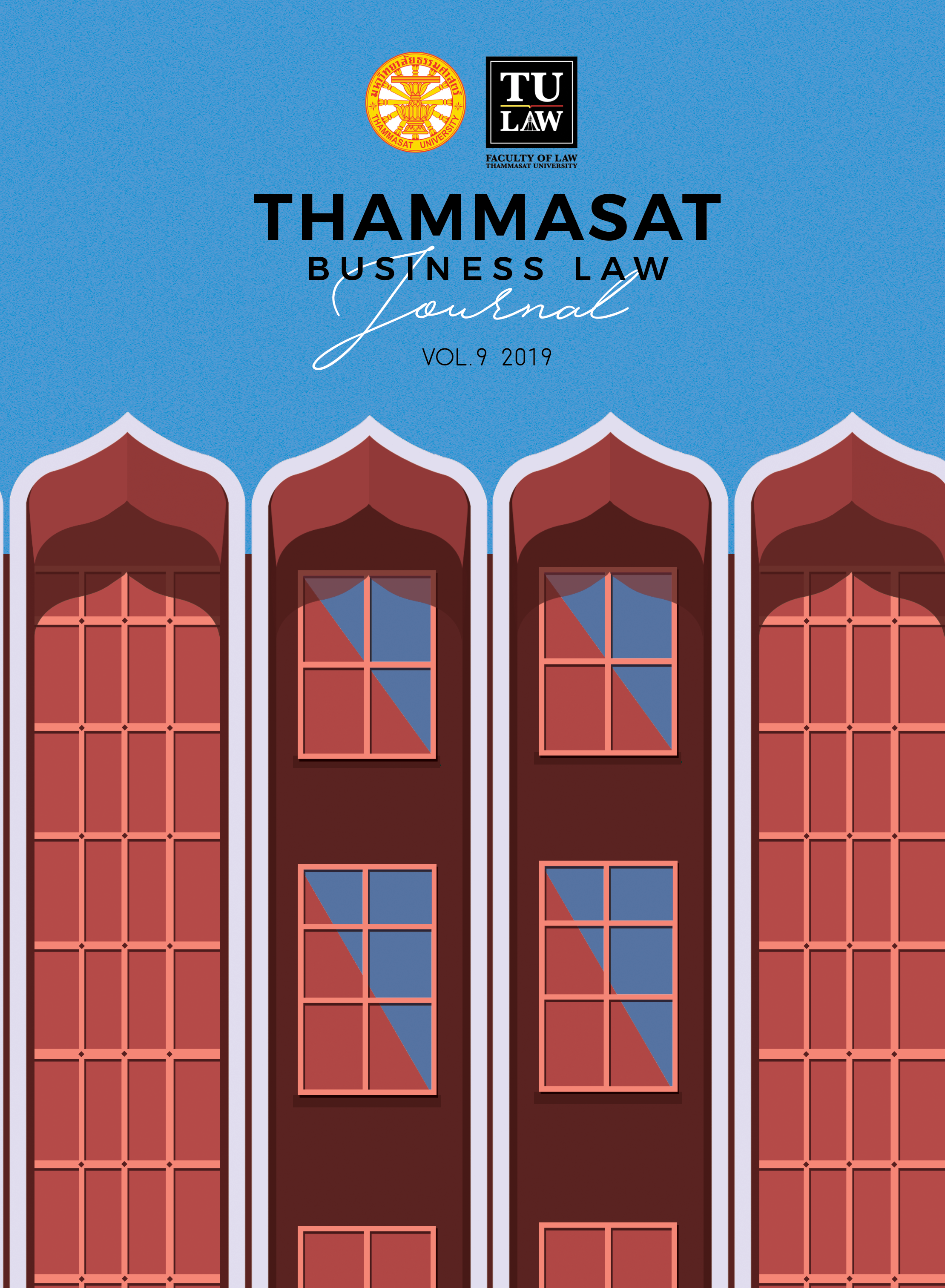The Imposition of Tax on Over-the-top Content Providers in Thailand
Main Article Content
Abstract
Due to the abrupt growth of technology, the digital contents are conveyed to the consumer via the internet or other telecommunication networks which is called the Over-the-top (OTT) service. Most of OTT service providers are foreign companies which have no taxable presence in Thailand. Their incomes are from subscription fees and advertising fees collected from a consumer or advertiser in Thailand without paying any taxes to Thai tax authorities. The Organisation for Economic Co-operation and Development (OECD) insisted that profit should be taxed in a jurisdiction where the digital service is consumed. However, under the Thai Revenue Code, the current provisions related to income tax and VAT on a foreign company whose services are consumed in Thailand are not efficient and not practicable.
This article suggests that the relevant provisions for income tax and VAT on a foreign entity under the Revenue Code should be amended for enforcing and convincing the large foreign OTT service providers to comply with tax measures in Thailand.
Article Details
References
ชัยสิทธิ์ ตราชูธรรม, คำสอนวิชากฎหมายภาษีอากร (พิมพ์ครั้งที่ 10, สำนักอบรมศึกษากฎหมายแห่งเนติบัณฑิตยสภา, 2558) (Chaiyasit Trachutham, Kham Sorn Vicha Kodmhai Paseearkoen [Taxation Study Book] (10thedn, Institute of Legal Education of the Thai Bar Association, 2015)).
Electronic Sources
German Federal Film Board, ‘FFA in Brief’
HM Revenue & Custom, ‘Diverted profits tax : Guidance’
Laura Duran, Baker, Mckenzie, ‘VAT on digital services in Colombia’
OECD, ‘International VAT/GST Guidelines’
OECD (2015), ‘Addressing the Tax Challenges of the Digital Economy, Action 1 - 2015 Final Report, OECD/G20 Base Erosion and Profit Shifting Project’
Roshan, ‘Video On Demand Revenue Models : What’s the best for your business?’


